

This story has been updated to remove references to Greater Health Pharmacy and Wellness as the first Black-owned pharmacy in Missouri. Dr. Earnest L. Harris, who graduated from the St. Louis College of Pharmacy in 1868, operated drug stores in St. Louis from 1900-1941.
On the last day of Black History Month, community members and collaborators witnessed history in the making at the grand opening of GreaterHealth Pharmacy and Wellness, located in Delmar DivINe.
Dr. Marcus Howard and his team are poised to provide culturally competent care in the heart of what has historically been known as the Delmar Divide, a name given to a phenomenon highlighting differences in life expectancy and generational wealth long dictated by whether a person lives in the majority Black neighborhoods north of Delmar Boulevard, or if they reside in the mostly white neighborhoods to the south.
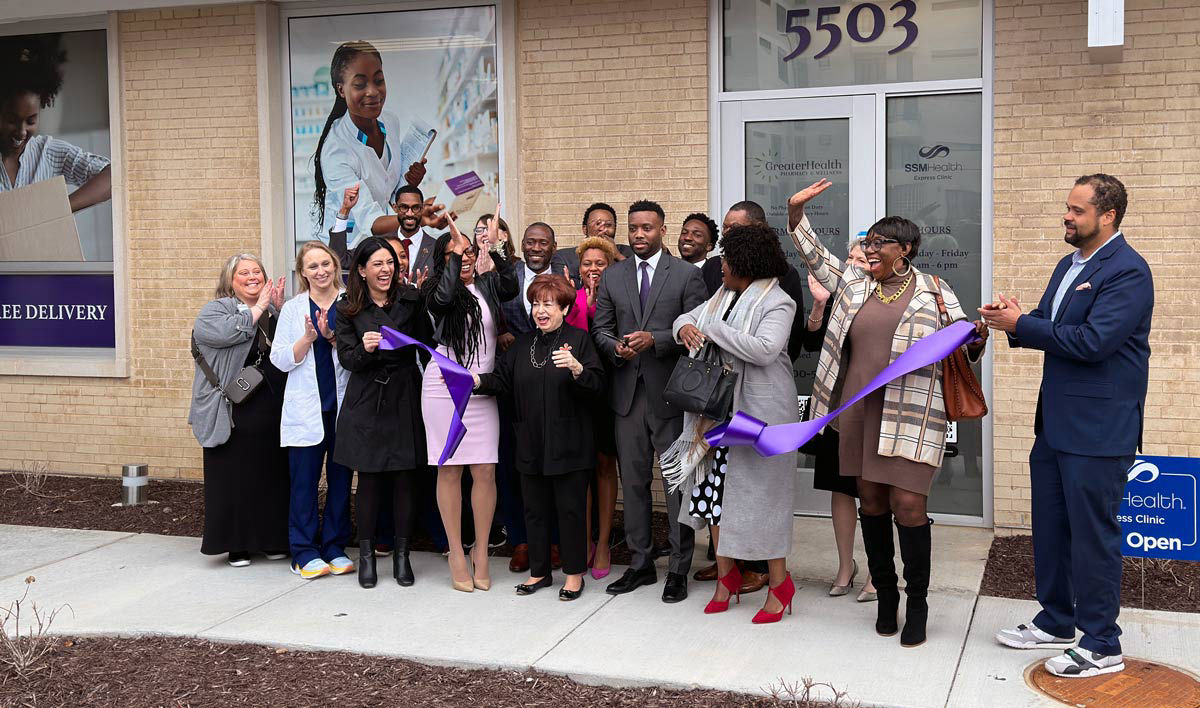
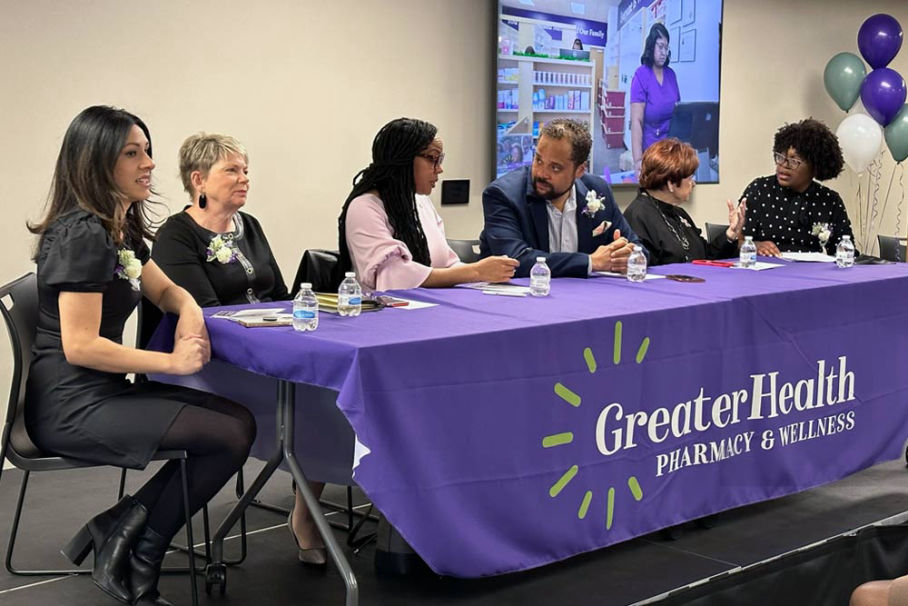
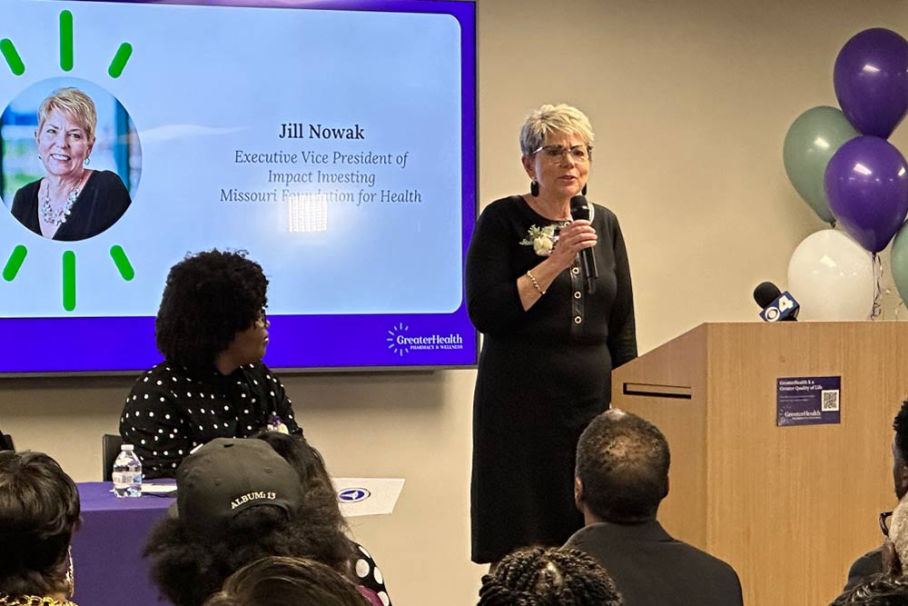
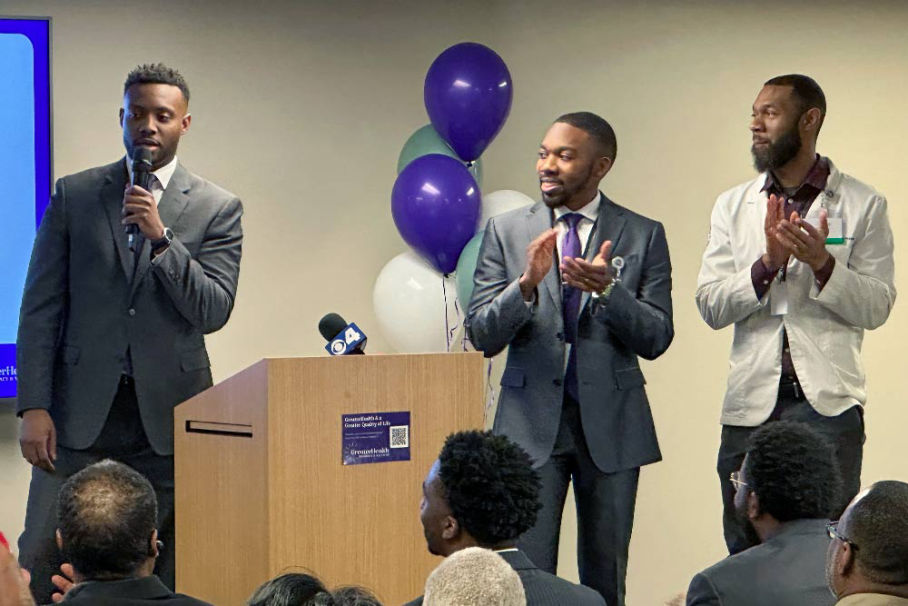
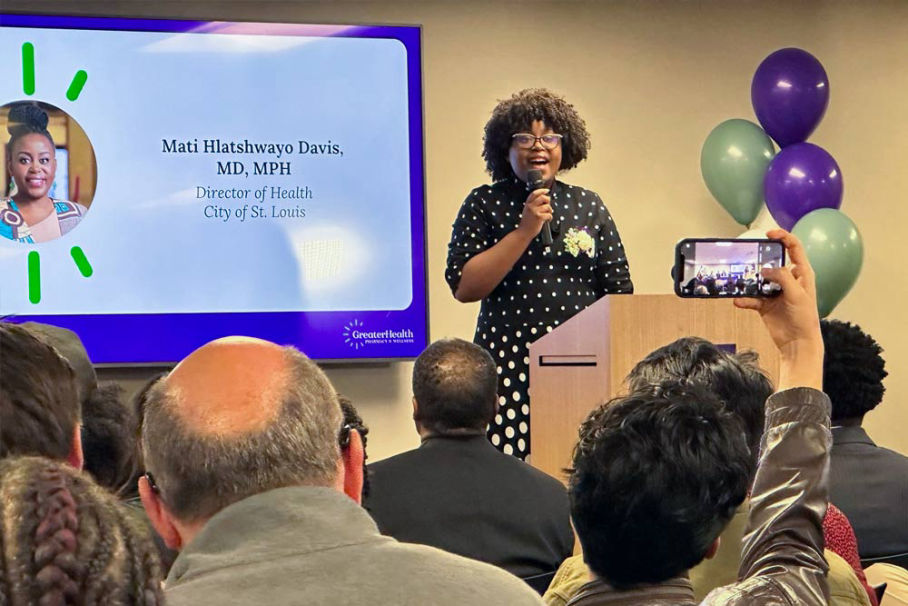
Place and health are closely tied and a focus area within the intersectionality of equity for MFH’s work, as we continue to partner with communities and collaborators to nurture health-promoting environments that address the specific needs of Missourians. Healthier places have access to nutritious food, outside spaces, and affordable health care to prevent and manage disease. These amenities have not always been available to all residents within the Delmar DivINe’s geographic reach. In understanding the role that geography has in health and well-being, what becomes apparent is that racially motivated tactics such as a lack of resources and disinvestment have stifled underserved communities. The introduction of businesses like GreaterHealth demonstrates that the health of the residents is a priority and gives them hope for the future.
The pharmacy’s grand opening was celebratory for the Foundation as well; the partnership marked the first time the Foundation invested in a for-profit venture. Howard’s plan to center the health and well-being of residents in an area of the city that hasn’t always been prioritized, working in partnership with SSM, offered an opportunity to expand the Foundation’s existing work around changing systems that promote and reinforce health inequities.
“This goes beyond simply opening a pharmacy in a neighborhood that didn’t have one,” said Dr. Dwayne Proctor, President and CEO of Missouri Foundation for Health. “This is about creating a space where people come in and see themselves represented on their care team. It’s about culturally competent care delivered with compassion and intention. GreaterHealth Pharmacy is providing that for traditionally underserved groups and their families. It marks a significant step in the right direction for health equity in the region.”
GreaterHealth meets an obvious need in a former pharmacy desert, but the opportunity for impact is much greater, no pun intended. Black pharmacists fill a health care void for Black patients in the U.S., who have higher rates of death of from diabetes, chronic liver disease, stroke, and other ailments than for non-Hispanic white people.
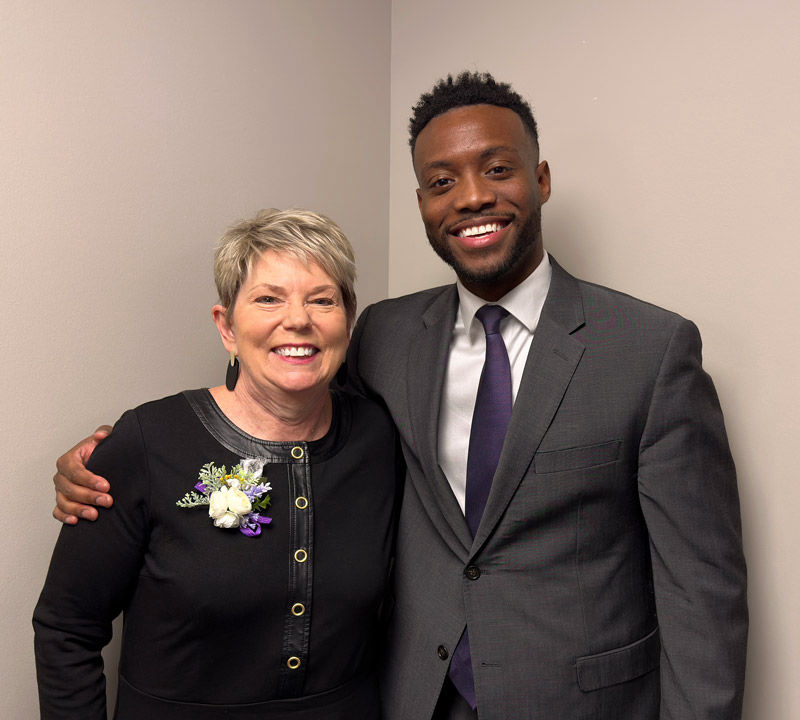
Jill Nowak and Dr. Marcus Howard
“Dr. Howard’s passion for an enterprise that could drive systems and social change was inspiring to us. When we received the proposal from GreaterHealth, it clearly demonstrated not only the dream, but the plan for success,” said Jill Nowak, Executive Vice President of Impact Investing.
Although not a pharmacist himself, Dr. Howard realized that he and his team had a unique opportunity to improve the lives of people in his hometown, especially those who have been historically marginalized. That’s been a goal of his since he was 5 years old.
“We serve human beings,” he said. Howard also noted that visitors have already commented on the friendly, welcoming atmosphere at the pharmacy. “Even the building inspector mentioned it. He said, ‘It feels different here.’”
The team at GreaterHealth believes that everyone deserves to receive the highest quality of care and have access to an equitable opportunity to experience a greater quality of life, which, some would say is a different approach to community pharmacy and perhaps what’s needed to get us closer to achieving health equity in Missouri.